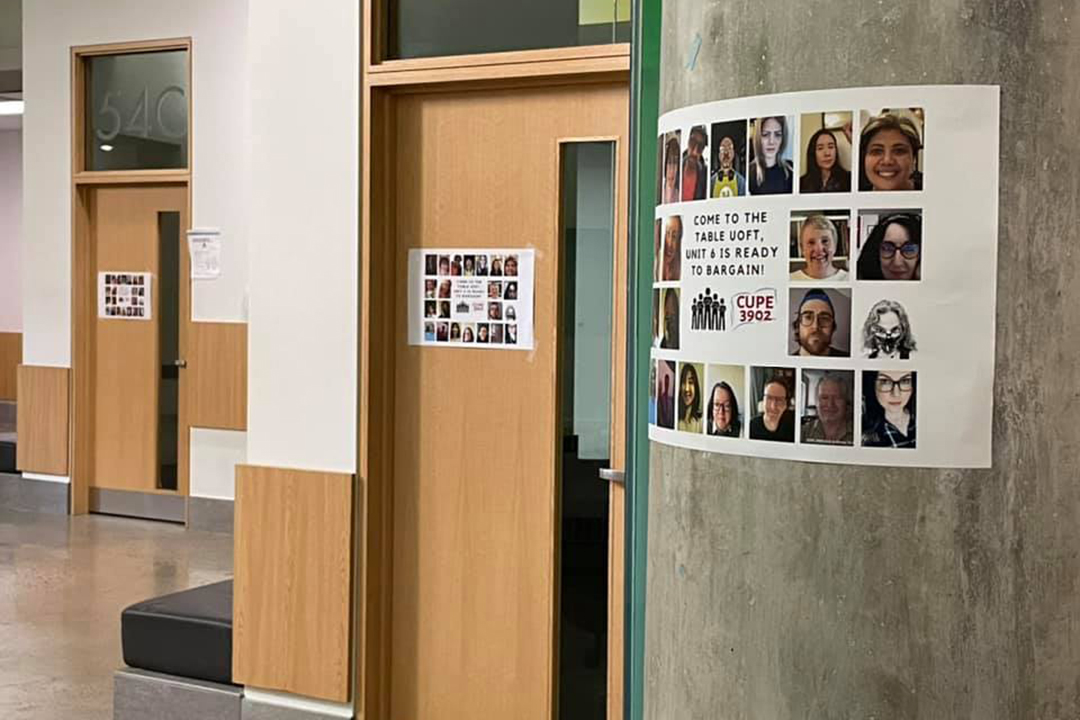The Canadian Union of Public Employees Local 3902 (CUPE 3902), which represents contract academic workers at U of T, recently announced the addition of a sixth unit, which represents instructors for non-credit courses employed by international student programs at New College.
Approximately 80 instructors in the International Foundation Program (IFP) and the International English Program (IEP) are represented by Unit 6. These programs prepare incoming international students for life at U of T, and help them with university transition, language learning, and cultural immersion.
“We organized Unit 6 because a large group of us were frustrated that, despite our quality teaching bringing millions of dollars of tuition to U of T, we have no benefits or pension,” wrote Daniel Brielmaier, chair and co-lead negotiator of the bargaining team, and Kate Finegan, CUPE 3902’s chief spokesperson, in an email to The Varsity.
Instructors who are now represented under Unit 6 lacked representation because the courses in the international programs at U of T award non-degree credits, meaning that they don’t count towards a degree. This prevented the instructors from becoming members of CUPE 3902 Unit 3, which represents sessional instructors and other short-term teaching staff.
Goals of a collective agreement
Unit 6 is requesting improvements in job security, benefits, and compensation for its members, which are the unit’s top priorities, according to a member survey. Brielmaier and Finegan wrote that many members have been working with the international programs for many years and that teaching English can be a precarious field of work.
“Our enrollment is always vulnerable to changes in international policies and relations, which means our livelihood is vulnerable to the same. That’s why job security is a key concern,” Brielmaier and Finegan wrote.
Many of the practices being brought to the bargaining table already exist for the unit’s members, but the bargaining team hopes that creating a collective document will help legitimize them. “Having a fair and equitable Collective Agreement will provide a safe means of settling disagreements with supervisors through the grievance process, as well as safeguarding members against discrimination and threats to health and safety, including pandemics like COVID-19,” they wrote.
The union also believes that a collective agreement will serve as an educational resource for supervisors and members to help answer questions and provide guidance.
Response from U of T
In its announcement about the creation of Unit 6, CUPE 3902 claimed that “the University of Toronto contested the composition of the new unit, arguing that [International English Program] and [International Foundation Program] instructors shouldn’t be organised as a single unit because they teach at different times of the year.”
A spokesperson for the university responded to the claim in an email to The Varsity, saying that “the University and CUPE followed the normal process for establishing a new bargaining unit, which helped ensure procedural fairness for all affected parties, including the employees.”
The university hopes the discussions are productive and hopes to reach a collective agreement with the new unit. “We are looking forward to positive, constructive, and collaborative discussions with CUPE Local 3902, and we hope to reach a tentative agreement that will be ratified by the employees in this bargaining unit in the near future,” the spokesperson added.
The university and the union began collective bargaining on June 28. Negotiations are expected to continue throughout the summer and the upcoming fall semester.


